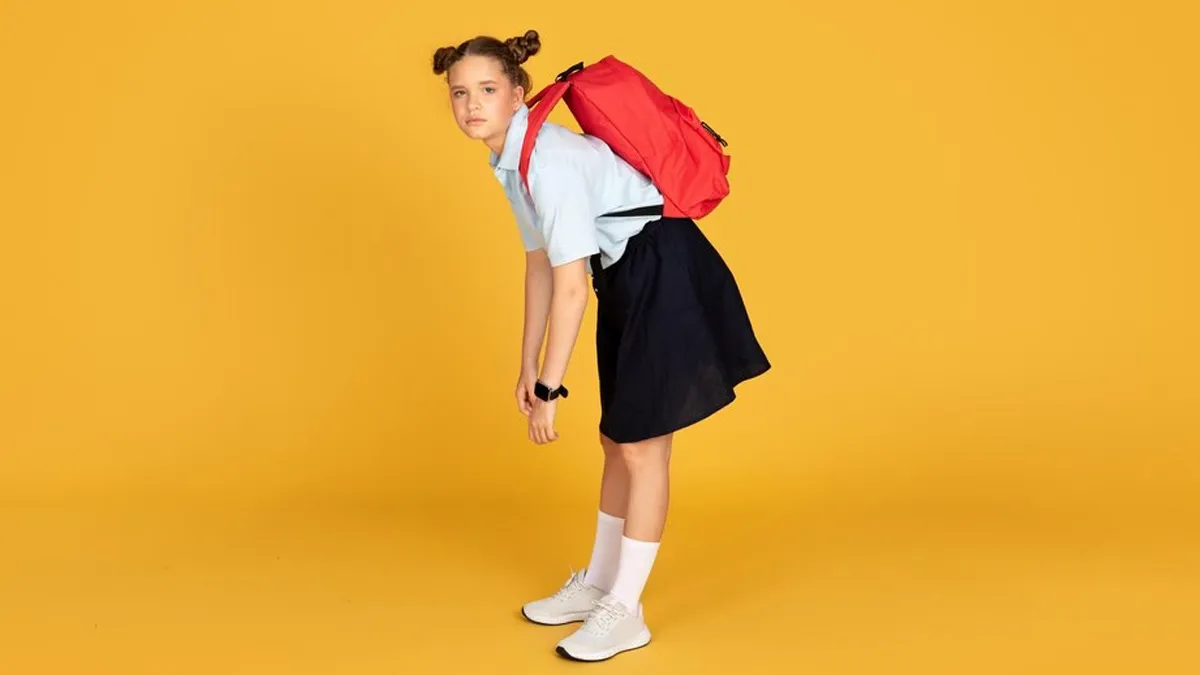
For years, students have been burdened with excessively heavy backpacks, which makes them slouch and walk at a slower pace. These huge bags on little shoulders may be a seemingly minor issue, but can have serious consequences on a child’s posture and spinal health– highlighting the need for parents to keep this aspect in check.
Table of Content:-
In a conversation with the OnlyMyHealth team, Dr. K.L. Kalra, Senior Consultant, Spinal Surgery, Sir Ganga Ram Hospital, New Delhi highlights the risks associated with heavy backpacks and offers solutions to prevent long-term damage, including scoliosis, kyphosis, and chronic muscle injuries.
RELATED: Say ‘Goodbye’ to Surgery: Expert Lists Advanced Non-Surgical Interventions for Spine Health
How Can Heavy Backpacks Affect The Spine?
-1734685994880.jpg)
Carrying an overloaded backpack puts undue stress on the developing bodies of schoolchildren. Dr. Kalra explains that when a child carries a heavy bag, their upper back often hunches forward, causing a condition known as kyphosis, or hunchback. This constant strain on the shoulders, back, and neck muscles can lead to chronic muscle fatigue and, eventually, spinal deformities.
The excessive load causes children to lean forward, straining the spinal extensor muscles and leading to poor posture habits. Over time, this can result in back pain, shoulder pain, and neck pain. Dr Kalra emphasises that if these symptoms are not addressed promptly, the child may develop more serious spinal issues like scoliosis, a condition where the spine curves abnormally.
Signs Parents Should Watch Out For
According to Dr Kalra, parents should monitor their children for the following signs of strain or developing spinal issues.
- Complaints of aching in the back or shoulders, especially after school, could indicate excessive strain.
- A noticeable forward hunch or rounded shoulders may suggest the development of kyphosis.
- If one shoulder appears higher than the other, it could be an early sign of scoliosis.
- Quick fatigue or soreness in the shoulder or back muscles after carrying a backpack is a red flag.
- Strained neck muscles from poor posture can also lead to headaches.
RELATED: Does Your Child Have Unexplained Back Pain? Expert Warns It Could Be Spondylolisthesis
Solutions For Better Posture And Spinal Health
-1734686023528.jpg)
Dr. Kalra emphasises that prevention is key. Here are several strategies that he suggests to mitigate the risks associated with heavy backpacks and promote better posture. Parents can take cognisance of the following.
- Ensure that your child’s backpack weighs no more than 10-15% of their body weight. Encourage them to carry only essential items and leave unnecessary books at home or school whenever possible.
- Use wide, padded straps as this helps distribute weight more evenly and prevents shoulder strain.
- Distributing weight evenly across compartments reduces stress on specific muscles, which is why parents must opt for bags with multiple compartments.
- The backpack should rest evenly on the middle of the back, not hang low over the hips– adjust the straps and ensure the bag is properly placed.
- Teach children to stand and sit up straight, with their shoulders back and the head aligned with the spine. Proper sitting posture during class is just as important as carrying a balanced load.
- Dr. Kalra also recommends exercises to build strong back and shoulder muscles, especially the spinal extensor muscles.
- Encourage children to take frequent breaks from carrying heavy bags and engage in light stretching to relieve muscle tension.
When Should You Get Your Child Checked For Spinal Issues?
If your child experiences persistent pain or visible posture problems, consult a healthcare professional or a qualified orthopaedic specialist. Treatment options may include:
- Targeted exercises to improve posture and relieve pain.
- In severe cases, braces may be used to correct spinal alignment.
- Changes in daily habits to support spinal health.
Bottomline
Heavy backpacks pose a significant risk to children’s spinal health, potentially leading to conditions like kyphosis and scoliosis. By understanding the dangers and implementing preventive strategies, parents and children can avoid long-term damage. Encouraging proper posture, limiting backpack weight, and incorporating muscle-strengthening exercises can go a long way in promoting a healthy spine. If symptoms persist, seek the advice of a qualified medical professional to ensure your child’s spine stays strong and healthy.
How we keep this article up to date:
We work with experts and keep a close eye on the latest in health and wellness. Whenever there is a new research or helpful information, we update our articles with accurate and useful advice.
Current Version
